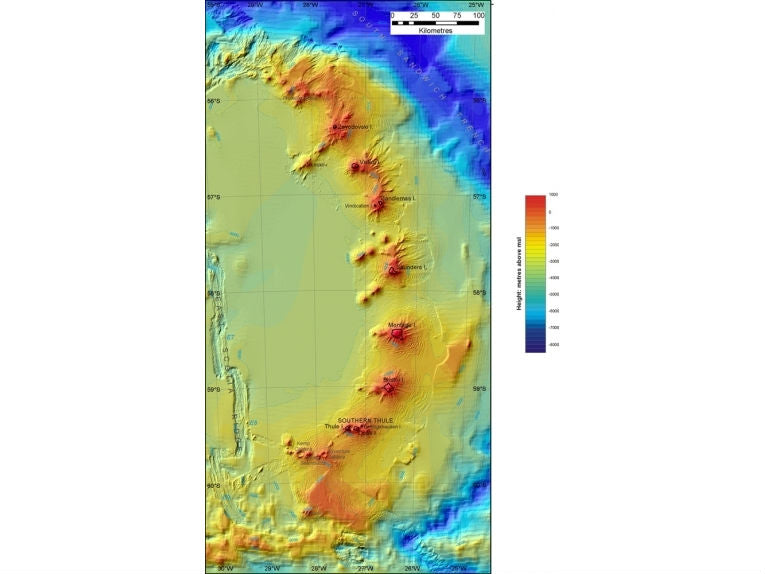Previously unknown volcanoes have been discovered under the Southern Ocean around the remote South Sandwich Islands. Scientists from the British Antarctic Survey (BAS) used sea-floor mapping technology to find 12 underwater volcanoes, some up to 3 kilometres high. Seven of these volcanoes are still active.
This is an exciting discovery, which could provide new insight into what happens when volcanoes erupt or collapse underwater. This may enable better tsunami early warning systems. In addition, the waters around these volcanoes are warmed by the volcanic activity, creating an exciting species rich area amidst the cold Southern Ocean, potentially containing species new to science.
Speaking at the International Symposium on Antarctic Earth Sciences in Edinburgh Dr Phil Leat from BAS said "There is so much that we don't understand about volcanic activity beneath the sea - it's likely that volcanoes are erupting or collapsing all the time.
The technologies that scientists can now use from ships not only give us an opportunity to piece together the story of the evolution of our earth, but they also help shed new light on the development of natural events that pose hazards for people living in more populated regions on the planet."
Phil Leat is just one of the many BAS scientists participating in the International Symposium on Antarctic Earth Sciences (ISAES) this week. Over 500 experts from fields as diverse as glaciology and zoology will be sharing their research findings. Of critical importance at this conference will be a discussion around the role that the Antarctic ice sheet plays in regulating the Earth's climate and the potential impact of melting ice on rising sea levels.
Professor Nick Owens, Director of British Antarctic Survey said, "We are delighted to be involved in this meeting on the eve of the centenary of Captain Scott. The scientific discoveries and achievements that have been made since the Heroic Age have changed our world. The knowledge and expertise shared this week will strengthen existing partnerships and forge new ones to enable us to address the big questions we have about Antarctica in our rapidly changing world."
With the impact of melting Antarctic ice potentially devastating in the world's fight against rising sea levels, this conference could be vital in solving one of our greatest challenges.
Top Image: Sea-floor mapping technology reveals volcanoes beneath the sea surface Credit: © NERC-BAS










